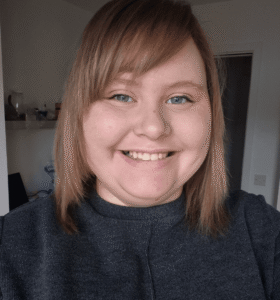Rachel: DBI and the Power of Peer
I am delighted to share my experience delivering Distress Brief Intervention (DBI) with peer support at its core. My journey with Penumbra spans 15 years, focusing on peer-supported services. I began in 2010 as a Service Manager in Aberdeen and later led the DBI pilot service. Since then, I have played a national role in expanding DBI across Scotland.
What is DBI?
DBI emerged from the Scottish Government’s commitment to improving responses to distress. Launched in 2017, the programme was piloted across four sites and independently evaluated, leading to its national implementation. Today, DBI is embedded in all Health and Social Care Partnership (HSCP) sites and includes a national pathway for referrals via NHS 24 Mental Health Hub and the Scottish Ambulance Service.
DBI offers a two-level response. Level 1, provided by frontline staff, involves an empathetic conversation to support individuals experiencing distress. If needed, they can be referred to Level 2 support, which offers up to 14 days of person-centred intervention from voluntary sector practitioners.
Penumbra has been instrumental in building a national distress collaboration, reducing duplication, increasing efficiency, and prioritizing compassion over medicalization. DBI’s success lies in its early intervention and its emphasis on people as individuals.
Penumbra’s DBI Journey
Penumbra has played a leading role in DBI delivery. We provide core DBI services in Aberdeen and contribute to the national pathway, covering 43% of Scotland’s population. We developed the first DBI Associate Programme in Moray and expanded it to Ayrshire, Midlothian, Tayside, Edinburgh, Aberdeenshire, and East Lothian. We co-produce DBI in Orkney with the Blide Trust and in Shetland with Mind Your Head.
Since 2017, we have supported over 26,000 people in distress. We operate across 20 HSCP sites with 70 dedicated practitioners, 53% of whom are peers. Peer support has been deliberately embedded in our staffing structures because it fosters trust, connection, and hope.
Peer support is a relationship of mutual support where people with lived experiences help others facing similar challenges.
The Power of Peer Support
Peer support is a relationship of mutual support where people with lived experiences help others facing similar challenges. In DBI, peer practitioners demonstrate recovery, model resilience, and inspire hope. As DBI is short-term, every moment counts, and peer support quickly builds rapport, reduces stigma, and empowers individuals.
Peer support does not always require sharing personal stories; sometimes, it’s simply about conveying shared understanding and validating emotions. Peer connections create a safe, non-judgmental space, reducing barriers to seeking help. Distress is not limited to mental ill-health but includes life challenges we all encounter. Peer support acknowledges these diverse experiences and helps individuals find their own path forward.
Peer Approaches in DBI
DBI’s peer-based model has been crucial to its success. Many factors contribute to distress, including self-harm, suicidal thoughts, and societal stigma. Self-stigma, in particular, prevents people from seeking help. Peer support breaks this cycle by normalizing distress and encouraging recovery.
With DBI’s broad reach, we support individuals from all walks of life, from young adults to people in their 90s. Peer support reinforces that distress is not a weakness, and asking for help is a strength. Our peer practitioners bring varied lived experiences, making support more relatable and meaningful.
Peer support fosters empathy, helping practitioners relate to others’ experiences and meet individuals where they are. This creates a collaborative environment where the person receiving support directs their journey. Lived experience enables practitioners to provide practical, creative solutions beyond conventional clinical approaches.
Outcomes and Impact
Our data shows that only 15% of DBI-supported individuals require referrals to specialist services. The peer approach significantly contributes to this success by encouraging self-management and resilience. Peer support moves beyond conventional models, reinforcing that individuals are the experts of their own experiences.
The mutuality of peer support—sharing experiences, strategies, and resources—motivates people to navigate their next steps with confidence. It reduces fear, encourages ownership, and fosters a sense of community. As one supported person shared:
“I had never spoken to someone who had gone through anything like I have. It made me feel like I wasn’t broken. You helped me believe I could keep going.”
A peer practitioner added:
“Sharing lived experience helps people feel like they are talking to a person, rather than a service. It shifts the perceived power imbalance.”
DBI demonstrates the profound impact of peer support in distress interventions. It provides a compassionate, non-clinical approach that empowers individuals and reduces reliance on traditional mental health services. By embedding peer support in DBI, we make every moment of connection count, inspiring recovery and resilience.
So, I leave you with this question—why not peer?
Thank you, Rachel for sharing your DBI journey and explaining the power of peer support!
Inspired? Visit Penumbra’s career page: penumbra.org.uk/careers




